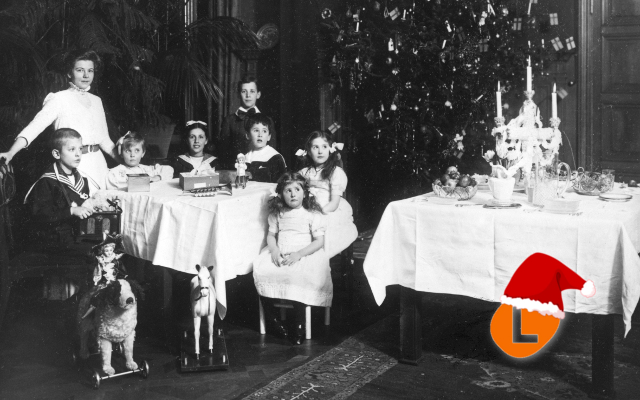From adventsljusstakar to Saint Lucia, which we'll cover later this week, history demonstrates that some of the most beloved Swedish Christmas traditions didn't originate in Sweden, but were instead adapted from other countries' traditions to become uniquely Swedish.
Likewise, traditions such as glögg and Kalle Anka (more on that next week), which also originated elsewhere, didn't even begin as Christmas traditions at all. In some cases, this type of cultural transfer has been so successful that the foreign roots of certain traditions may seem barely noticeable.
But while Sweden has a history of integrating reinvented and repurposed foreign customs into its celebration of Christmas, it is difficult to find examples of traditions embedded in Swedish Christmas that were introduced by foreigners who made Sweden their home in more modern times. In spite of Sweden becoming an increasingly multicultural country over the past 75 years, Swedish Christmas traditions appear to remain relatively unchanged by the festive customs of immigrants.
Though few, if any, notable examples exist of Swedish Christmas traditions that have been significantly adapted or changed through the influence of immigrants, there are many examples of customs introduced by immigrants that have been readily incorporated into everyday modern Swedish life and culture. This, combined with the fact that Christmas in Sweden is overwhelmingly secular, seems to indicate that structural resistance is not what is preventing the further evolution of Swedish Christmas traditions, if it's even being prevented at all.
Although resistance to change may indeed play a role in why few foreign traditions appear to have impacted Swedish Christmas in modern times, it seems fair to say that the integration process itself and the pace of cultural transfer have also played a part. Some immigrants, for instance, believe that full cultural assimilation is necessary for successful integration. This would have been especially true in the past for many who came to Sweden when it was a much more homogeneous society. But even when immigrants have embraced both their own and their adopted cultures, successfully combining them in their families and introducing them in their communities, such changes take time to spread and become part of national culture and tradition.
It's possible that Swedish Christmas is in the process of transforming itself right now, and has been for some time. Perhaps the traditions brought by the successive waves of immigrants who have become Swedish citizens are already incorporated into the celebration of Christmas in Sweden in ways we are yet to fully realize or understand. Just as foreign traditions have become considered uniquely Swedish in centuries past, in time, so too will theirs.



 Please whitelist us to continue reading.
Please whitelist us to continue reading.
Member comments